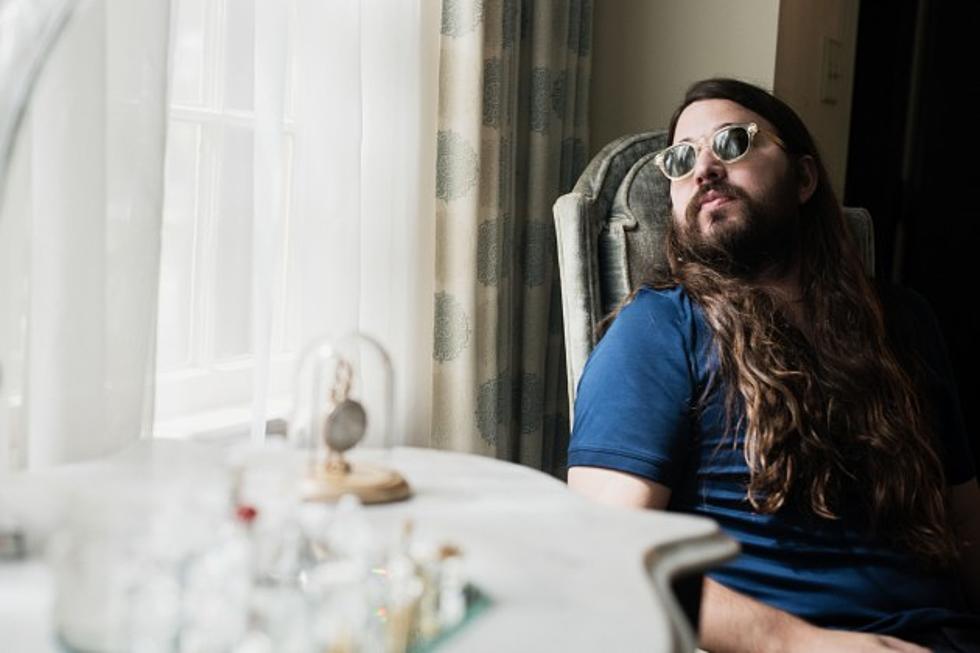
Matthew E. White Transforms His Sound at New York’s Baby’s All Right
Though they've never enjoyed the success of the tough guitar-centric bands who made “alternative rock” a mainstream proposition in the ‘90s, there have always been indie groups that found inspiration in the heavily-orchestrated work of someone like Brian Wilson, rather than the stripped-down approach of the Velvet Underground. As grunge ruled the charts, Belle and Sebastian, the Cardigans and others were busy deploying string sections and brass arrangements; in the ‘00s, Sufjan Stevens and the National carried the torch for maximalism.
“Indie” acts can have a taste for opulence on par with any major label extravaganza.
Matthew E. White -- who played a show last night (April 6) at Baby’s All Right in Brooklyn -- is a part of this tradition, though his sound is quite different. He works with the rich, raw material of ‘70s pop, creating ensemble music that combines the sumptuousness of that decade’s soul – simultaneously gritty and immaculate – with strains of Los Angeles pop (but more Dennis Wilson than Brian). To help forge this mixture, White founded Spacebomb Records in Richmond, which he outfitted with an in-house arranger and a band of regulars. The label released his first album, Big Inner, in 2012; the follow-up, Fresh Blood, is out on Domino (known for acts like Franz Ferdinand and the Arctic Monkeys).
Recently, Spacebomb also put out an album by the singer Natalie Prass, who attested to the scrupulous, pain-staking approach favored by the studio. “We recorded in January of 2012,” she told The New Yorker, “and they [White and his arranger] told me it would be a year, which even then seemed like a long time. I remember I was standing on a mountain in Los Angeles when they called to push it another year. If I had known they would push it to 2015, I might have fallen off the cliff.” But sweating the small stuff paid off – Prass’s album has received nearly universal acclaim, and regardless of whether you like it, you’d be hard-pressed to think of another record out right now that sounds like it.
How can you recreate this attitude for highly-orchestrated music live on stage in a small venue like Baby’s All Right, which isn’t exactly Carnegie Hall? You probably can’t, and wisely, White doesn’t try – his show is a clever bait and switch. Accompanied by a fiery, pliable three-piece band, featuring Alan Parker on lead guitar, Pinson Chanselle Jr. on drums and Cameron Ralston on bass, White revamped his tunes, rendering them earthy and raw, less studied. The group took the stage to Curtis Mayfield’s “Billy Jack,” a deep, sprawling groove from 1975, which gives you an idea of their mindset.
This doesn’t mean that White entirely remade his sound in performance: He maintained the signature aspect of his vocal delivery. His voice is low, wide and whispery; he spilled out over the music like Serge Gainsbourg, guttural, raspy, even slightly creepy at times. It takes courage to step up to a microphone – a tool for making yourself loud – and ooze rather than belt.
But there’s no syrup in the live arrangements: White and his band, nearing the end of a month-long tour, came hurtling at the audience, muscular and tightly coordinated. They opened the set with “Take Care My Baby,” which is the closest White gets to pure R&B on record. In performance, the waterfalls of dueling guitar verged on the downtown art-rock of Television, and the pummeling surges of bass leaned towards reggae.
That was just one of many occasions when White broke from the sound of his recorded work and bounded off in an unexpected direction. When playing the title track to Big Love, the barbed, pointy guitars returned, now seemingly ripped from post-punk. Parker switched to a lap pedal-steel guitar for “Fruit Trees,” slashing and dive-bombing his way across the patterns laid out by the rhythm section.
On the lead single from Fresh Blood, White jokes, “Everybody knows that rock and roll is cold” -- but it doesn’t have to be, especially when your band contains a drummer like Chanselle Jr. He put on a stunning display of virtuosity and power during “Feeling Good Is Good Enough.” Later, he seemed to be playing a whiplash variation on the “Funky Drummer” breakbeat and laughing to himself, at ease in a sea of stuttering, shifting rhythm.
In the end, White's magic trick wasn't squeezing a massive ensemble into a small space -- it was transforming expansive, orchestrated tunes into tight, high-energy grooves.
More From Diffuser.fm









